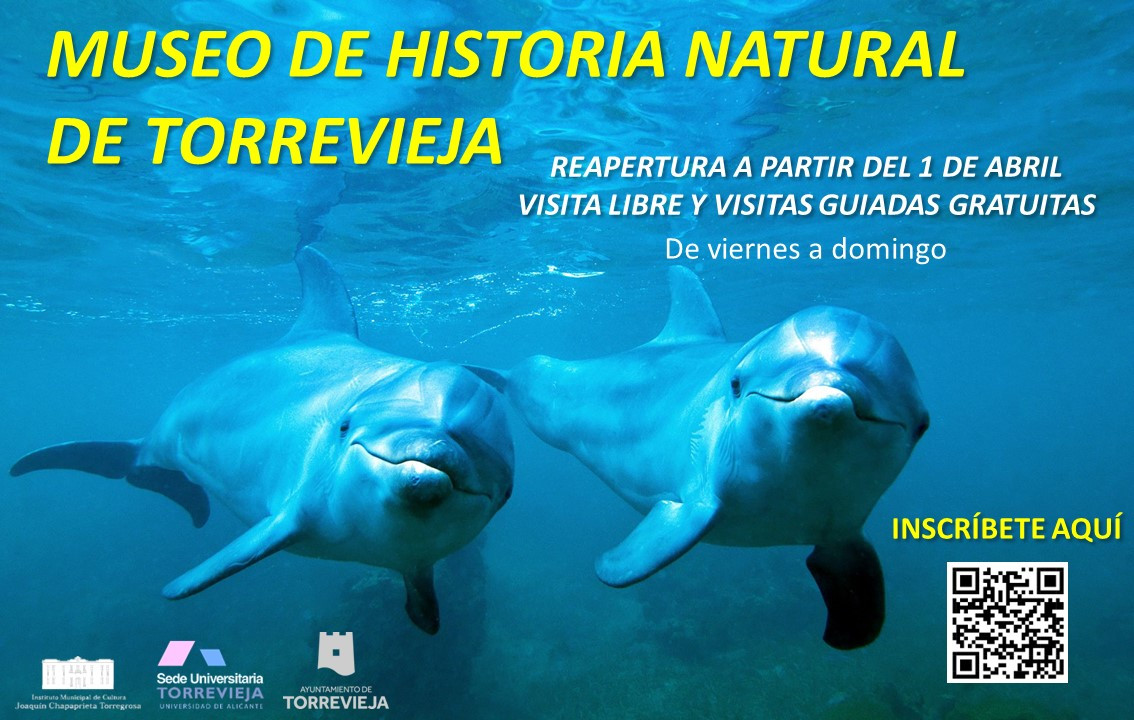The Torrevieja City Council reopens the Natural History Museum from April 1 for your free visit or guided tours in Spanish and English

The Department of Culture of the Torrevieja City Council reopens the Natural History Museum during the three months of spring for free visits and free guided tours with the collaboration of the University of Alicante Headquarters and the management of the scientist María Luisa Molina.
The Councilor for Culture, Antonio Quesada, has reported that the reopening of the Museum, located on Avenida Estación s/n, will be this coming Saturday, April 1, from Friday to Sunday, from 10:00 a.m. to 1:00 p.m. , and Friday afternoon from 5:00 p.m. to 7:00 p.m. Guided tours will be free and will take place on alternate weekends, according to the calendar included in the poster. On the last Saturday of each month the guided tours will be in English.
Likewise, there will be guided tours for educational centers and guided tours for families and the general public, lasting one hour and up to a maximum of 30 people/group. Prior registration is required through this link http://turismodetorrevieja.com/web/?page_id=18911 or the QR code on the poster.
The Torrevieja Natural History Museum has a great representation of the biodiversity of species that surround us, both marine and terrestrial, some in danger of extinction, others endemic to our area, and others so rare and admired that international experts come to Torrevieja to contemplate them.
Contains specimens of Mammals, Ornithology, Herpetology, Ichthyology, Marine Invertebrates and Malacology. Thus, for example, we will find skeletons of bottlenose and striped dolphins, rorquals, collections of original nests (abandoned after the breeding period) and replica eggs of a total of 17 species of birds native to the area, loggerhead turtles, marine mollusks of the Mediterranean Sea collected over the years on the coast of Torrevieja, as well as donations from individuals of special relevance and others so singular and unique that they have been claimed by museums in Madrid, Barcelona, Valencia and Paris .